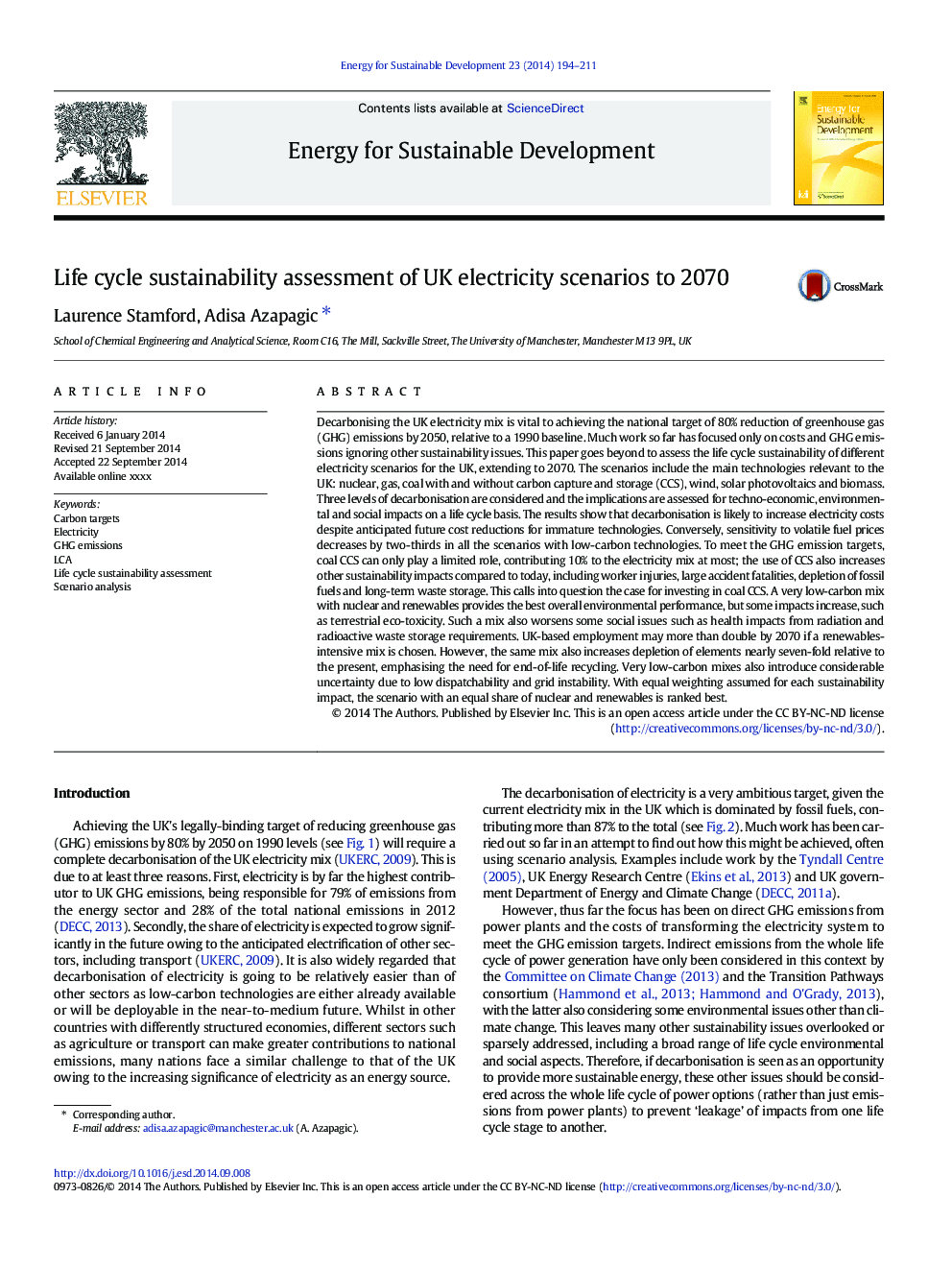| کد مقاله | کد نشریه | سال انتشار | مقاله انگلیسی | نسخه تمام متن |
|---|---|---|---|---|
| 7453988 | 1484407 | 2014 | 18 صفحه PDF | دانلود رایگان |
عنوان انگلیسی مقاله ISI
Life cycle sustainability assessment of UK electricity scenarios to 2070
ترجمه فارسی عنوان
ارزیابی پایداری چرخه حیات برق انگلستان تا سال 2070
دانلود مقاله + سفارش ترجمه
دانلود مقاله ISI انگلیسی
رایگان برای ایرانیان
کلمات کلیدی
موضوعات مرتبط
مهندسی و علوم پایه
مهندسی انرژی
انرژی (عمومی)
چکیده انگلیسی
Decarbonising the UK electricity mix is vital to achieving the national target of 80% reduction of greenhouse gas (GHG) emissions by 2050, relative to a 1990 baseline. Much work so far has focused only on costs and GHG emissions ignoring other sustainability issues. This paper goes beyond to assess the life cycle sustainability of different electricity scenarios for the UK, extending to 2070. The scenarios include the main technologies relevant to the UK: nuclear, gas, coal with and without carbon capture and storage (CCS), wind, solar photovoltaics and biomass. Three levels of decarbonisation are considered and the implications are assessed for techno-economic, environmental and social impacts on a life cycle basis. The results show that decarbonisation is likely to increase electricity costs despite anticipated future cost reductions for immature technologies. Conversely, sensitivity to volatile fuel prices decreases by two-thirds in all the scenarios with low-carbon technologies. To meet the GHG emission targets, coal CCS can only play a limited role, contributing 10% to the electricity mix at most; the use of CCS also increases other sustainability impacts compared to today, including worker injuries, large accident fatalities, depletion of fossil fuels and long-term waste storage. This calls into question the case for investing in coal CCS. A very low-carbon mix with nuclear and renewables provides the best overall environmental performance, but some impacts increase, such as terrestrial eco-toxicity. Such a mix also worsens some social issues such as health impacts from radiation and radioactive waste storage requirements. UK-based employment may more than double by 2070 if a renewables-intensive mix is chosen. However, the same mix also increases depletion of elements nearly seven-fold relative to the present, emphasising the need for end-of-life recycling. Very low-carbon mixes also introduce considerable uncertainty due to low dispatchability and grid instability. With equal weighting assumed for each sustainability impact, the scenario with an equal share of nuclear and renewables is ranked best.
ناشر
Database: Elsevier - ScienceDirect (ساینس دایرکت)
Journal: Energy for Sustainable Development - Volume 23, December 2014, Pages 194-211
Journal: Energy for Sustainable Development - Volume 23, December 2014, Pages 194-211
نویسندگان
Laurence Stamford, Adisa Azapagic,
